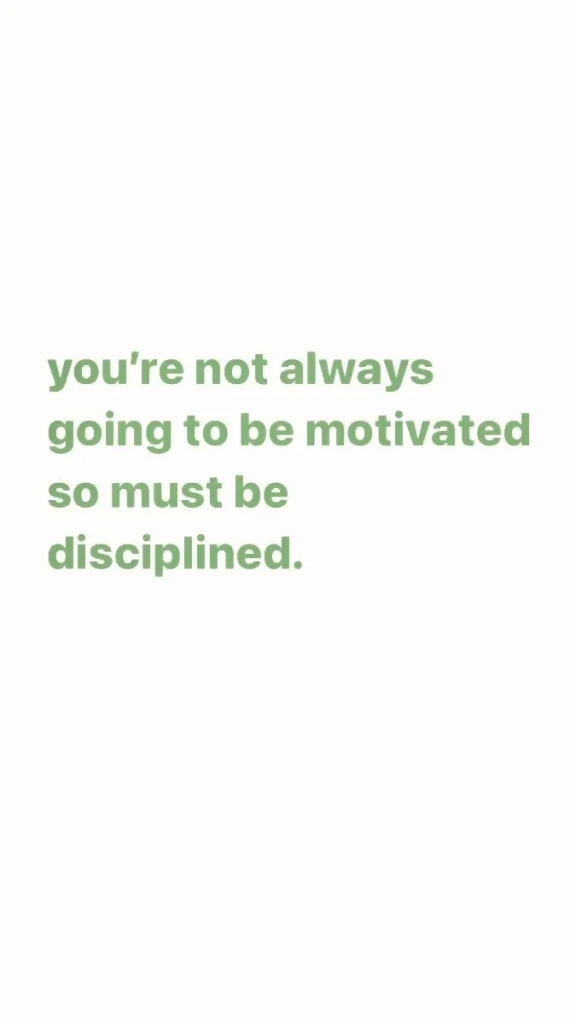Good Morning 😃
How are you doing?
Friday letters are usually dedicated to taking questions from our community. Do you have a question for us? Please feel free to
- send an e-mail to info@themoneyafrica.com; or
- send a DM to any of our social media channels, or
- simply fill out this form. Don’t worry, your responses are kept anonymous.
***

Do you want your children to learn about the stock market, budgeting, saving and investing? Our annual financial literacy boot camp is here. The classes are self-paced with 4 live classes.
Hurry and sign up. Early birds will soon be over!
***
Question
Am a fashion designer, I get good jobs but don’t know where my money goes.
Answer
Here are some detailed points to help you manage your finances as a business owner and keep track of your money.
1. Track your income and expenses: Start by recording all your income sources, including payments for your fashion design jobs, freelance work, or any other earnings. Also, keep a detailed record of your expenses, such as materials, equipment, transportation, and any other business-related costs.
2. Create a budget: Once you have a clear picture of your income and expenses, create a budget to allocate funds appropriately. This budget should cover both your personal and professional expenses. Set aside a specific amount for savings, emergencies, and future investments.
3. Categorise your expenses: Group your expenses into categories, such as raw materials, business overheads, marketing, personal expenses, etc. This categorisation will help you identify areas where you might be overspending.
4. Review your spending habits: Regularly review your spending habits and identify areas where you can cut back. Be mindful of unnecessary expenses and consider alternatives that can help you save money without compromising on quality.
5. Set financial goals: Define both short-term and long-term financial goals. Having clear objectives will motivate you to manage your money better and achieve your desired financial milestones.
6. Separate personal and business finances: This is where some business owners miss it and it begins to seem like you’re not making any money when in fact it’s just mismanagement of funds. Separate your personal finances from your business finances. Set up a dedicated business account to handle all your fashion design-related income and expenses. This separation will make it easier to track business-related finances and claim tax deductions.
7. Regularly review your financial situation: Make it a habit to review your financial situation regularly. This will help you stay on top of your financial health and make necessary adjustments to your budget as your income or expenses change.
***
Question
I live in Lagos and earn N200,000 but I always go broke a week after my salary is paid. How can I manage N200,000 and still save money? I have spent almost N95,000 on transportation since the removal of the fuel subsidy.
Answer
Managing your finances on a N200,000 salary can be challenging, especially with high transportation costs. Here are some tips to help you budget better and save money:
1. Create a budget: Start by creating a detailed budget that includes all your expenses, such as rent, utilities, groceries, and other essential costs. This will give you a clear picture of where your money is going and help you identify areas where you can cut back.
2. Reduce transportation costs: Since transportation is a significant expense for you, explore ways to reduce it. Consider carpooling, using public transportation, or even walking for shorter distances whenever possible. If you can use the BRT buses, please do. They have 50% off transportation. This will reduce how much you spend on transportation.
3. Pack your meals: Eating out can be costly, so try packing your meals for work. Preparing your food at home will not only save money but also give you better control over your diet.
4. Limit non-essential spending: Be mindful of discretionary spending on non-essential items like entertainment, impulse purchases, or luxury goods. Set a limit on these expenses and avoid overspending.
5. Emergency fund: Start building an emergency fund to cover unexpected expenses. Having a financial safety net will prevent you from dipping into your regular income for emergencies. It’s advisable to save 3-6 months of your monthly expenses.
6. Explore remote work opportunities: Given the high transportation costs and the flexibility that remote work offers, consider exploring opportunities to work remotely. Remote work can help you save on transportation expenses and provide more control over your schedule, allowing for a better work-life balance.
***

Do you want your children to learn about the stock market, budgeting, saving and investing? Our annual financial literacy boot camp is here. The classes are self-paced with 4 live classes
Hurry and sign up. Early birds will soon be over!
***
Would you like to know the state of your finances?
Take this test to see how you are doing financially
***
Do you know that we have our own podcast? It’s MONEYTALKS!💚
Here’s a link to listen to all the amazing episodes we have!
***
Thank you for reading Money Africa’s Blog.
Please feel free to share it.
MoneyAfrica premium plan
Are you a mid to high-income earner? Do you find communities a bit too busy? You should sign up for our premium plan.

You can learn more about that here.
***
We often get questions regarding how to plan your finances to align with your relocation plans, especially for students seeking to further their studies. As always, we have heard you, and we have put together an e-book to help you navigate this. Follow this link, to get your FREE copy of the e-book: The Japa Encyclopedia.
***
Get our annual subscription and learn more about investing safely and building a solid portfolio in 2023.
Don’t forget to:
- Join our community, if you want to smash your 2023 financial goals. It takes at least 30 days to build great habits that will last you a lifetime. So why not start now? There is a lot you can achieve.
- If you would like to document your financial journey in 2023, then our journal would be an excellent fit for you. It costs ₦7,500 (excluding delivery).
- Get a budget sheet to track your monthly expenses. Click here
- Get an investment tracker to be on top of all your investments. Click here
MoneyAfrica is a financial literacy platform. Our goal is to make everyone better with their finances.
We do this by engagements via our:
– social media handles
– platforms for paid community members (for adults and students)
– webinar sessions with corporate clients
Would you like to join any of the communities? Please click here
Would you like us to hold a webinar for your company’s staff? Please send an email to info@themoneyafrica.com


